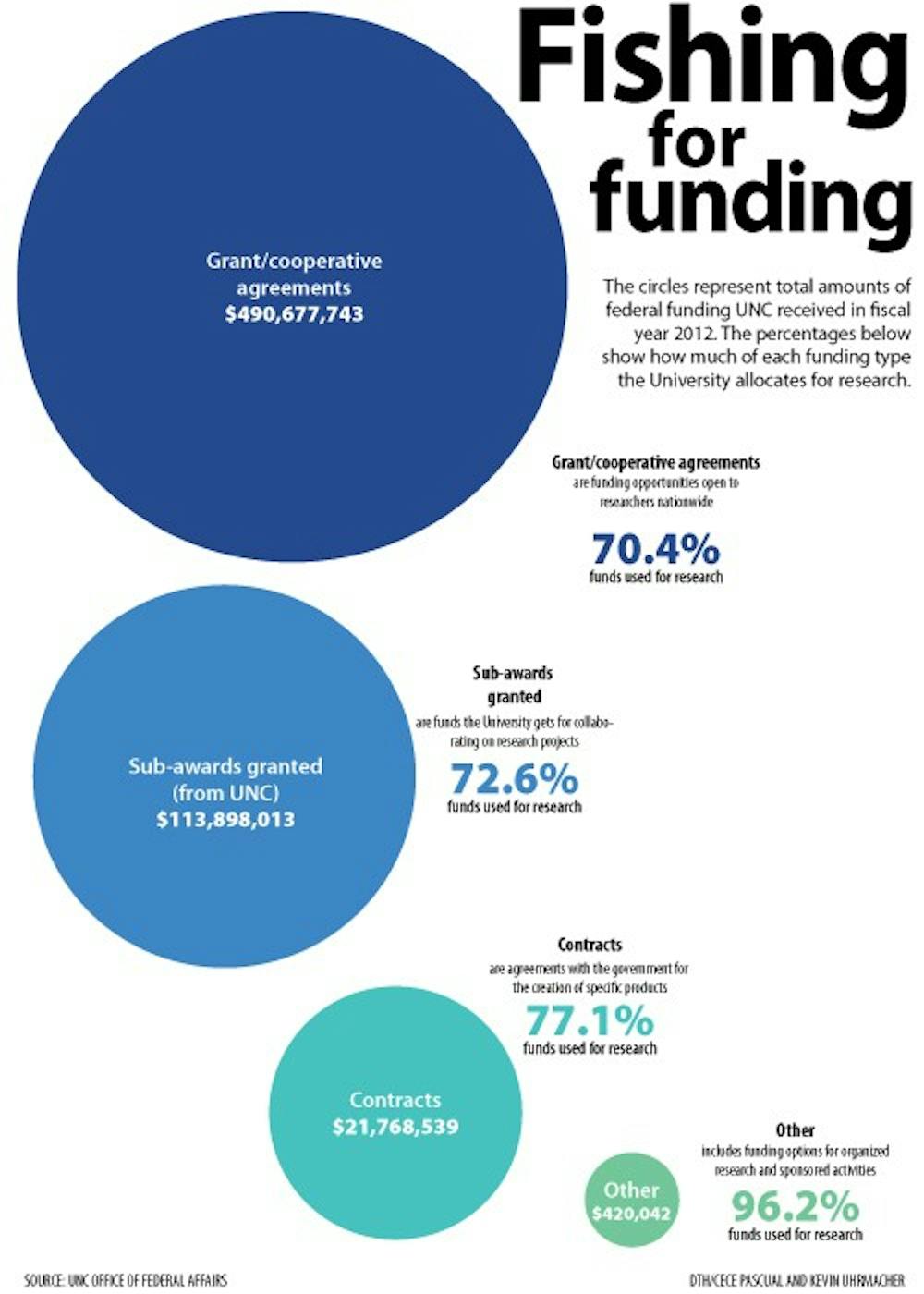In the last few years, UNC-system lobbyists have spent significant time advocating for legislation on cancer research, veterans affairs and even a 2011 bill to save great apes.
The UNC system, unlike most lobbying operations, legally cannot donate money to those it lobbies. Ballou said this puts the system in a special role.
“Higher education is all too often an afterthought when legislation is drafted,” he said. “We view ourselves as primarily advocates and educators.”
While the system as a whole cannot contribute money, individual system employees often donate on the federal level, with no explicit connections to universities.
According to campaign finance data, UNC-CH employees and their families donated more than $80,000 to President Barack Obama’s campaign and more than $15,000 to that of U.S. Rep. David Price, D-N.C., in 2011-12.
‘Number one source’
Research has been a major component of UNC-CH’s mission, championed by outgoing Chancellor Holden Thorp.
Karen Regan, director of UNC-CH’s Office of Federal Affairs, said the office’s main focus in D.C. is securing opportunities for researchers to receive federal funding.
Federal funding comes in the form of grants, contracts, sub-awards and a catch-all category of “other,” said Mel Jones, director of analytics and business intelligence for UNC-CH’s Office of Research Information Systems.
In general, grants are free-for-all funding opportunities that researchers apply for nationwide. Contracts are specific agreements between the government and researchers to create a product, while sub-awards are the funding distributed among universities when collaborating on research.
“Grant, in federal terms, is referred to as assistance — the product belongs to the university. Contract is procurement — the product belongs to the government,” said Bob Lowman, UNC-CH associate vice chancellor for research.
Regan said agencies, such as the National Institutes of Health, allocate a certain amount of grant money each year, and lobbyists try to convince these agencies to give as much as possible.
To get the day's news and headlines in your inbox each morning, sign up for our email newsletters.
A majority, 78 percent, of federal funding for UNC-CH comes from grants. Sub-awards constitute a distant second with 18 percent, and contracts make up only 3 percent.
Grants dominate UNC-CH funding from all sources, accounting for 74 percent of overall funding and 57 percent of non-federal funding.
All this money has real effects on students throughout the system, Lowman said.
“(Research funding) pays (graduate student) salaries, pays their tuition,” he said.
“The federal government is our number one source of support. That’s true of most major universities.”
But as the automatic cuts of sequestration go into effect, the National Institutes of Health faces funding cuts — which will likely lead to decreased research funding opportunities for the system.
The agency is the largest source of research grants on campus, providing 70 percent of UNC-CH’s federal funding in fiscal year 2012.
“This is a challenging time because of sequestration and budget cuts on the federal level,” Lowman said.
“We are all somewhat holding our breath trying to determine what impact that is going to have.”
Contact the desk editor at state@dailytarheel.com.



